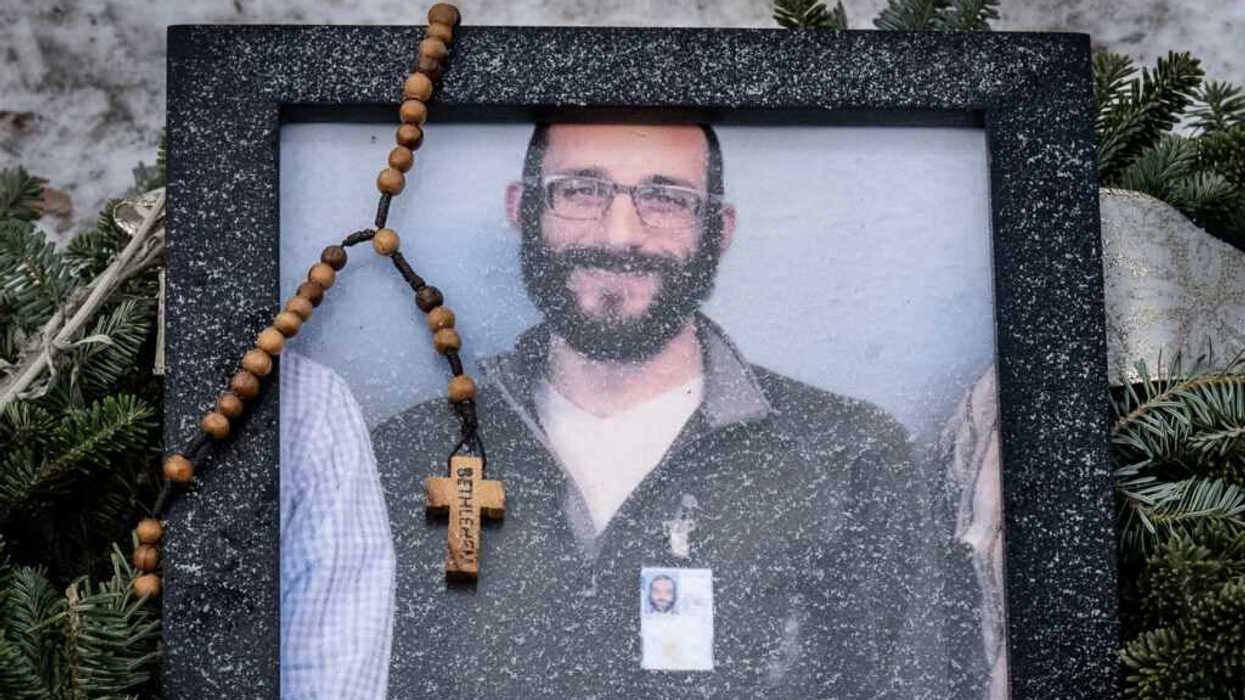Ginsburg is a second-year student at Georgetown University and an intern at FairVote, a nonpartisan group advocating mainly for ranked-choice voting but also the creation of multi-member legislative districts.
Every four years Americans refocus their collective attention on the lovable wackiness of Iowa's first-in-the-nation presidential voting.
For more than a year, the candidates have competed to endear themselves to voters — who will eventually decide these hopefuls' political fate — by munching on deep-fried Oreos or challenging hecklers to push-up contests.
And now, on Monday night, all heck is going to break loose. Hundreds of Democrats will crowd into local libraries and high school gyms to make their case to their neighbors and, eventually, vote publicly with their feet. Unlike any other event in American politics, these caucuses, by discarding the secret ballot while simultaneously prioritizing face-to-face persuasion, emphasize an intensely personal form of politics.
But those aren't the only reasons the Iowa caucuses are unique. They also allow for a voting mindset that is alien to the average American voter: ranking the candidates.
In the vast majority of American elections, voters only cast a vote for a single candidate. This is a feature of America's first-past-the-post system — and when there are two candidates vying for a single seat, it works swimmingly.
But most contested elections have more than two candidates, with third-party candidacies and write-ins often drawing small yet significant proportions of the vote. (Recall the 1992, 2000, and 2016 presidential elections.) In these all-too-common situations, voters are either forced to vote strategically to avoid "wasting" their vote or watch powerlessly as a candidate wins the election without garnering majority support from the electorate.
In the context of Democratic presidential nomination process — where, by party rule, only candidates receiving at least 15 percent support in a caucus or primary accrue delegates — this system means many voters won't help to elect delegates to the nominating convention in Milwaukee in July. In fact, in a recent New Hampshire poll only one candidate cleared that threshold: Sen. Bernie Sanders, with 28 percent support. If those results hold in next week's primary, he would claim all of the state's two dozen available delegates without even attaining the support of a third of the electorate.
Iowa's caucuses are different. By now, voters are expected not only to know their top candidate, but also which candidate is their next favorite choice.
This is because, if an Iowan's first-choice candidate does not meet a particular precinct location's viability threshold (typically 15 percent of the room), that voter has the opportunity to realign with — in other words, throw support behind — another candidate. This unique opportunity allows voters to illustrate their true preferences in the election, encourages positive rhetoric from candidates vying for second-choice support and rewards candidates who build consensus within the party.
In fact, this process and benefits are strikingly similar to ranked-choice voting, an increasingly popular voting reform recently adopted in New York City and Maine and on course to get used this year in the Democratic presidential primaries of Alaska, Kansas, Hawaii, Nevada and Wyoming.
For those contests, RCV has been modified to comply with party rules. Candidates who are not named as the No. 1 pick on at least 15 percent of the ballots will be eliminated and those ballots will get reassigned based on their No. 2 rankings. And that redistribution process will be repeated until all the remaining candidates can claim at least one delegate because they were ranked somewhere on at least 15 percent of all the ballots. (FairVote has created educational materials for voters in the four states.)
Much like what's happening in Iowa's caucuses, RCV eliminates "wasted votes," ensuring Americans that their votes — and, by extension, their voices — truly matter. In fact, Kansas Democratic Party Secretary George Hanna, in explaining the party's decision to abandon its traditional caucus system in favor of adopting an RCV primary this year, pointed out the resemblance between the two voting methods.
"Ranked-choice voting essentially is caucusing by paper," he told the Emporia Gazette. "You are going to pick your first choice of the candidates that are available, your next choice ... and rank them."
But RCV actually takes voter empowerment a step further.
The Iowa caucuses are always held between seven and 10 p.m. on a weekday in the middle of winter. Unfortunately, this potentially disenfranchises several sorts of voters — including those who have jobs at night, lack adequate childcare, are uncomfortable driving in the dark or worried about venturing out in potentially treacherous conditions.
If the party opted to switch, whether in part or in full, to ranked-choice voting, it could provide citizens numerous benefits — such as allowing Democrats to vote absentee or earlier on caucus day — while still preserving many charms of the current system.
And this would ensure the winner of Iowa's always-important contest is much more truly representative of the electorate's wishes.
By switching to a caucus or primary fully conducted using RCV, Iowans would lose out on some of the personal persuasion that gives caucuses special flair. But Iowa would also gain the participation of those who cannot currently take part in the process — an important consideration that may outweigh the caucus's current quaint quirks.
Iowa Democrats could also consider a hybrid, perhaps by reviving their virtual caucus plan. Ultimately shelved because of security concerns, it recognized the inherent similarities between the current caucuses and RCV. Or they could follow the lead of Nevada Democrats, who will allow early voters to rank their candidates using RCV — with those ballots integrated into the in-person caucuses on Feb. 22.
There is always inertia in changing any entrenched system, but the present form of the Iowa caucuses — borne of the unrest at the 1968 Democrat convention — is not set in stone. RCV bears striking similarities to the current caucus system, but is also presents numerous additional benefits. Here's hoping the Iowa Democratic Party seriously considers this method and that both major parties explore building it into their contests more broadly four years from now.



















